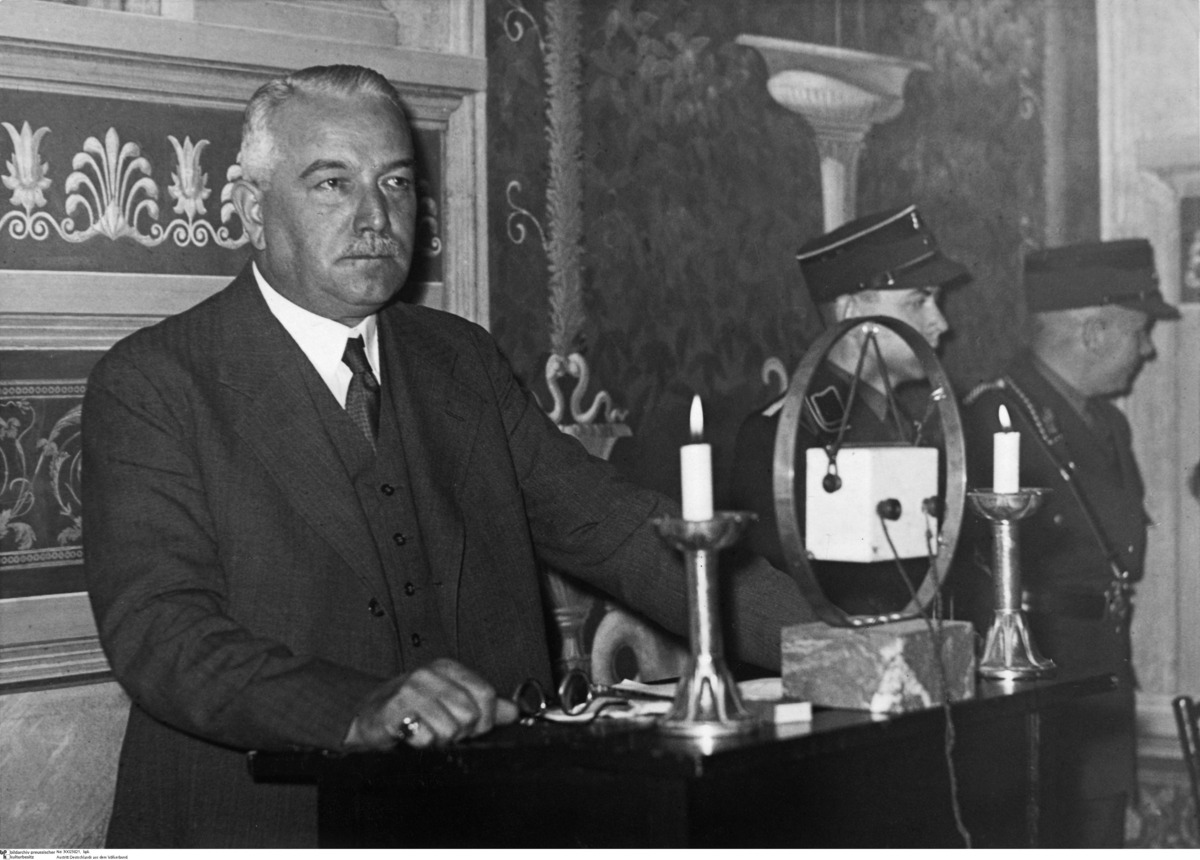Abstract
Hitler's foreign policy goals were based on his combined
understanding of race and space. According to his beliefs, the German
national community needed unlimited “living space”
[Lebensraum] to propagate and develop
its full racial potential. When Hitler’s foreign policy from 1933 to
1939 is viewed within this context, it becomes clear that he was
preparing for a war of conquest. While his government emphasized its
peaceful intentions and demanded no more than equal rights for Germany
on the international level, Hitler was pursuing the strategic-military
goal of making the country ready for war once again
[Wiederwehrhaftmachung]. The Nazi
regime’s first important step in the area of foreign policy was the
announcement of Germany's withdrawal from the Geneva Disarmament
Conference and the League of Nations on October 14, 1933. Hitler
presented the pull out as a form of protest – namely, against the
alleged humiliations inflicted upon Germany by Europe’s great powers
since the end of World War I and against the violation of Germany's
right to self-determination. Domestically, the withdrawal from the
League of Nations was a great success. According to official data, more
than 95% of Germans expressed support for this step in a referendum held
on November 12, 1933.
